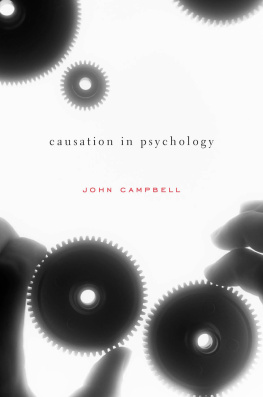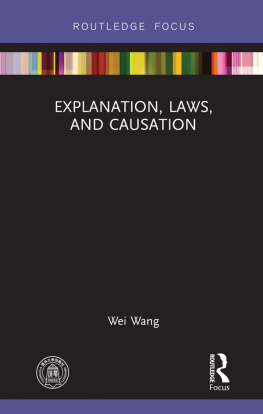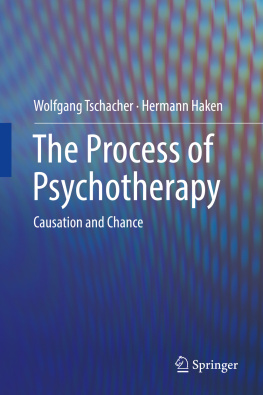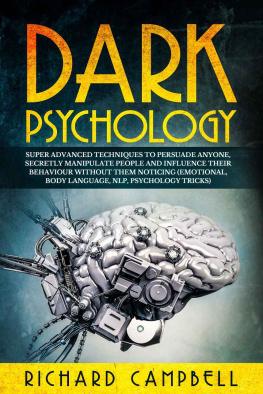Contents
Guide
Page List

CAUSATION IN PSYCHOLOGY
CAUSATION IN PSYCHOLOGY
Copyright 2020 by the President and Fellows of Harvard College
All rights reserved
Printed in the United States of America
First printing
9780674249523 (EPUB)
9780674249530 (MOBI)
9780674249547 (PDF)
9780674967861 (cloth)
Jacket design: Jill Breitbarth
Jacket photo: Gary S. Chapman/DigitalVision/Getty Images
Library of Congress Cataloging-in-Publication Data
Names: Campbell, John, 1956- author.
Title: Causation in psychology / John Campbell.
Description: Cambridge, Massachusetts : Harvard University Press, 2020. | Includes bibliographical references and index.
Identifiers: LCCN 2020017718 | ISBN 9780674967861 (cloth)
Subjects: LCSH: Technology and civilization. | Causation. | Robots. | Artificial intelligence. | Empathy.
Classification: LCC CB478 .C294 2020 | DDC 303.48/3dc23
LC record available at https://lccn.loc.gov/2020017718
for Rory, light of my life
CONTENTS
On the one hand, there are general causal claims, anything of the same form as
Humiliation causes depression
or
Salt causes heart disease,
where we seem to be dealing with a relation between two variables, such as humiliation or depression, which can take any of a range of values. In contrast, there are singular causal claims, such as
Billys desire for revenge caused him to attack
or
Sallys high salt intake caused her death from heart disease.
These singular causal claims seem to relate not variables but names of particular, concrete events.
The relation between general and singular causal claims is puzzling in any domain. For example, its a natural idea that general causation involves some kind of quantification over cases of singular causation. You might suggest that X causes Y means something like, There are many cases in which an instance of X causes an instance of Y. But as Christopher Hitchcock once pointed out, it does not on the face of it seem that general causal claims can be regarded as somehow quantifying over singular causal claims. If you take a remark like
Eating a pound of Uranium-235 causes death,
presumably thats true, even if no one will ever eat a pound of Uranium-235. Therefore, its hard to see what kind of collection of cases of singular causation a claim of general causation might be thought to reflect.
There is actually a deeper reason why singular causation may resist assimilation to general causation. If you think of causation in terms of generalizations, then it seems there cant be any more to singular causation than the instantiation of general causation. But suppose you think of causation in terms of processesconnecting cause and effect. A paradigm might be the trail of gunpowder connecting the lighting of a match to the detonation of a bomb. There might not be any generalization to be had about the connection between lighting matches and explosions. Sometimes the match lights, and there is an explosion; sometimes the match lights, and there isnt. There might also be nothing general to be said about what kind of fuse is required for the connection to be made, other than the vacuous, It has to be something that can causally connect the lighting of a match to an explosion. Nonetheless, in any particular case, we can follow the path from the lighting of the match to the detonation of the bomb, and in any one case, we can know decisively what was the cause of the detonation.
Of course, one might argue that the operations of processes themselves are to be understood in terms of generalizations. But it is not obvious how this is to be done in the physical case, and it is still less obvious how this might be done in the psychological case given the welter of factors that may figure in a psychological process and the difficulty of finding generalizations governing how they might interact with one another to generate an outcome.
Consider the relation between Humiliation causes depression and Sallys humiliation caused her depression. The mere fact that youve established the general causal claim does not show that the singular claim is correct.
Next page















